試す 金 - 無料
Genetic Study Yields Answers
Musky Hunter
|February/March 2021
STUDY SUGGESTS LEECH STRAIN IS NOT THE ‘SILVER BULLET’ FOR WISCONSIN MUSKY WATERS

Ahhhh ... genetics. I can’t get enough — the results never cease to amaze and inform. Hope-fully you feel that way, too. This research hits close to home for me because it was performed on four waters in Wisconsin, my home state. However, this article is not just for those in and around Wisconsin. These results should help you better understand musky (or any species of fish) management in your location.
Those of you who know me are aware of my second passion — hunting, specifically, archery hunting. I research that sport much like I do musky fishing. I use scientific discovery and peer-reviewed studies to put me on big deer quicker. If you deer hunt in the upper Midwest, no doubt you are familiar with deer meccas like Buffalo County, Wisconsin, southern Iowa, and Pike County, Illinois (to name a few). The common belief in much of Wisconsin is that the deer in Buffalo County grow big because they have special or unique genetics. If you look into the science (real peer-reviewed stuff) behind this premise, you will quickly find out that genetics play only a small role. Variables like mortality, habitat, climate, nutrition and age are equally important components.
This is no different for muskellunge. Genetics (DNA) is only part of the puzzle. Survival (mortality), habitat (water chemistry), climate (growing season length), nutrition (forage), and age combine to create a magnificent trophy muskellunge ... or not. It’s not just as simple as stock, wait, and catch giants.
Fish genetics is a rapidly growing field. Going forward, this discipline will help fisheries scientists and anglers better understand muskies. This paper was recently published in the North American Journal of Fisheries Management. This journal is widely accepted as the top of the mountain in terms of fish management publications.
このストーリーは、Musky Hunter の February/March 2021 版からのものです。
Magzter GOLD を購読すると、厳選された何千ものプレミアム記事や、10,000 以上の雑誌や新聞にアクセスできます。
すでに購読者ですか? サインイン
Musky Hunter からのその他のストーリー
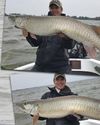
Musky Hunter
What can Current Do For You?
WATER FLOW IN LAKES IS SUBTLE AND OFTEN OVERLOOKED. BUT MUSKIES USE IT, SO WHY SHOULDN’T YOU?
3 mins
February/March 2021
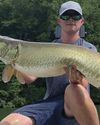
Musky Hunter
Mountain State Muskies In Spring
CATCH MUSKIES DURING TIMES WHEN NOTHING IS PREDICTABLE
4 mins
February/March 2021
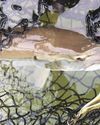
Musky Hunter
Winter Presentations For Southern Rivers
Winter has arrived, yet in the South it’s still mild enough to keep fishing with the exception of maybe a week or two of an Arctic front.
3 mins
February/March 2021

Musky Hunter
Tune Up For The Season Ahead
Have you started making your plans for the upcoming fishing year?
3 mins
February/March 2021
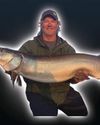
Musky Hunter
Rob Manthei
Guide Rob Manthei’s love for the Vilas/Oneida County region of northern Wisconsin is deeply rooted. His father and grandfather started taking him there on fishing trips when he was just two years old, and he began guiding full-time at the age of 25.
6 mins
February/March 2021
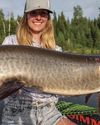
Musky Hunter
Find The Right Structure In Deep, Clear Water
With breathtaking scenery, vast amounts of water, and complex and diverse structure, clear water Canadian Shield lakes offer some of the most sought-after musky fishing in the world. A bucket-list destination for the passionate and determined angler, there’s something truly special about being in the sanctuary of the great Canadian Shield lakes.
4 mins
February/March 2021
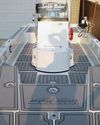
Musky Hunter
Multi-Species Or Bay Boat ... You Make The Choice
Is there really such a thing as a perfect musky boat? There are so many variables to choose from in the market today. Do I want a casting or trolling boat? Aluminum or fiberglass? Welded or riveted? Do I want a tiller, side console, dual console, or full windshield?
4 mins
February/March 2021
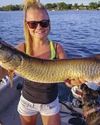
Musky Hunter
Region To Region
Region To Region
17 mins
February/March 2021
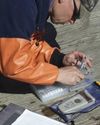
Musky Hunter
Genetic Study Yields Answers
STUDY SUGGESTS LEECH STRAIN IS NOT THE ‘SILVER BULLET’ FOR WISCONSIN MUSKY WATERS
6 mins
February/March 2021
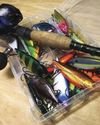
Musky Hunter
Crawling Crankbaits To Catch Cold Water Muskies
Crankbaits catch plenty of muskies during spring, summer and fall, but the key to catching ’skies in the very early cold water season on these lures involves some special tricks.
3 mins
February/March 2021
Translate
Change font size
